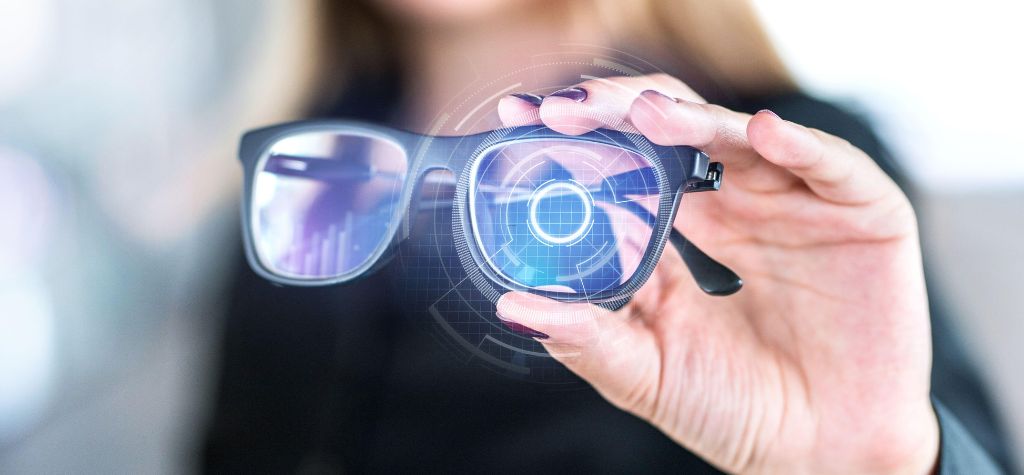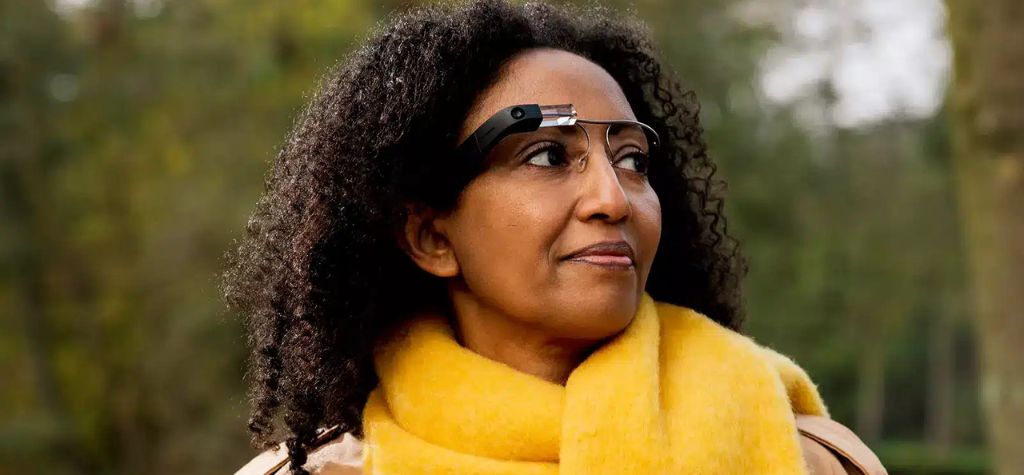For decades, visiting an optometrist has been the only way to get an accurate vision prescription. But what if your glasses could automatically adjust to your eyesight without needing an appointment? With advancements in AI glasses and self-adjusting eyewear, this once-futuristic concept is becoming a reality in 2025.
Instead of relying on manual prescriptions that can become outdated, AI-driven glasses use real-time eye tracking, smart sensors, and adaptive lenses to fine-tune vision correction instantly. These innovations promise to not only enhance convenience but also reduce costs, improve accessibility, and eliminate the need for frequent visits to an optometrist.
But does this technology truly have the potential to replace traditional eye care? Could AI glasses be as accurate and reliable as human professionals? Let’s dive into the future of eyewear in 2025 and explore whether AI is set to revolutionize optometry or simply complement it.
How AI Glasses Are Revolutionizing Eye Health

AI-Driven Vision Correction: The Future of Smart Eyewear
Traditional prescription glasses are static—once an optometrist determines your prescription, it remains fixed until your next exam. But vision changes over time due to factors like aging, eye strain, and health conditions. AI glasses solve this issue by continuously adapting to your eyesight in real time.
How AI Glasses Work
- Real-Time Eye Tracking – AI-powered sensors detect changes in focus, eye movement, and strain.
- Self-Adjusting Lenses – Smart liquid crystal or electrochromic lenses shift to provide the correct prescription instantly.
- Health Monitoring – Some models can track early symptoms of glaucoma, cataracts, or diabetic retinopathy.
- Personalized Display Adjustments – AI glasses can optimize contrast and brightness based on lighting conditions.
This self-adjusting eyewear ensures that users always have the perfect prescription, reducing the need for frequent optometrist visits.
Early Adopters: Who’s Already Using AI Glasses?

Smart Eyewear in Clinical Trials and Real-World Use
While fully autonomous AI-driven eyewear isn’t mainstream yet, several companies and research institutions are actively developing and testing self-adjusting eyewear.
Notable AI Glasses Trials & Early Products
- Mojo Vision – Developed AR-powered smart contact lenses that provide real-time visual enhancements.
- Deep Optics – Introduced dynamic auto-focusing lenses that adjust based on eye-tracking data.
- Google & Apple (Rumored Projects) – Leaked patents suggest both companies are working on AI-driven prescription eyewear.
Who Benefits Most from AI Glasses?
- People with rapidly changing vision (e.g., diabetes, aging eyes)
- Those living in remote areas where access to optometrists is limited
- Frequent screen users who need automatic adjustments for blue light reduction and glare control
- Elderly individuals who struggle with changing prescriptions frequently
Insurance & Cost Considerations
While current smart eyewear in 2025 is still a premium product, AI-powered glasses could become more affordable as adoption increases. Some health insurance providers are already exploring whether self-adjusting eyewear could be covered as a vision care expense, similar to prescription lenses.
The Debate: Can AI Glasses Really Replace Optometrists?

The Case for AI Glasses
✅ More Convenience – No more scheduling eye exams or waiting for new lenses.
✅ Instant Prescription Updates – Lenses adjust automatically, preventing outdated prescriptions.
✅ Cost Savings Over Time – Fewer eye exams and replacement lenses could lead to lower long-term costs.
✅ Greater Accessibility – AI-driven glasses could help millions worldwide who lack access to optometry services.
The Concerns & Potential Drawbacks
❌ Accuracy & Reliability – Can AI match the precision of a trained human optometrist?
❌ Job Displacement – If AI eyewear becomes widely adopted, will eye doctors lose their relevance?
❌ Privacy Risks – AI glasses collect and analyze sensitive health data—who controls that information?
❌ Limited Medical Scope – AI glasses may correct vision, but they can’t diagnose conditions like eye infections or retinal diseases.
What Do Eye Care Professionals Say?
While some optometrists see AI glasses as a valuable tool, most experts believe that they can’t fully replace professional eye exams. Instead, AI technology is likely to enhance eye care, providing on-the-go prescription adjustments while still requiring occasional human evaluation.
Frequently Asked Questions (FAQ) About AI Glasses
1. How Accurate Are AI Glasses Compared to Traditional Glasses?
AI glasses use real-time tracking to adjust lenses precisely, often providing better accuracy than a fixed prescription. However, their effectiveness depends on the quality of the eye-tracking system and AI algorithms.
2. Can AI Glasses Diagnose Eye Diseases?
Some AI glasses have health-monitoring features, but they can’t replace a full medical diagnosis. They can, however, detect early warning signs and prompt users to seek medical attention.
3. Are AI Glasses Expensive?
Currently, AI glasses are in the premium price range, but costs are expected to decrease as the technology becomes more widespread. Some insurance providers may cover AI-powered vision correction in the future.
4. Will AI Glasses Replace Optometrists Completely?
Not entirely. While they can handle prescription adjustments, they can’t perform comprehensive eye exams, diagnose medical conditions, or prescribe treatments.
5. When Will AI Glasses Be Available for Consumers?
Some self-adjusting eyewear models are already in clinical trials, with wider availability expected within the next few years. Tech giants like Google, Apple, and Samsung are rumored to be working on consumer-ready versions.
Conclusion: Would You Trust AI for Your Eye Exams?
Eyewear in 2025 is evolving fast, and AI glasses are leading the way. With self-adjusting eyewear providing instant vision correction, the traditional optometrist model could shift dramatically.
But while AI-driven glasses offer unmatched convenience, accessibility, and real-time adjustments, they aren’t perfect replacements for eye doctors—yet. Instead, they may serve as a powerful tool to enhance eye care, bridging the gap between traditional vision correction and modern technology.
Would you trust an AI-driven prescription over a human optometrist? Do you think self-adjusting eyewear is the future, or will traditional glasses always have a place? Share your thoughts in the comments!

